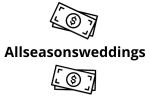Gambling law in Europe and the world
Gambling in Europe and in many other countries of the world is regulated by separate laws. Which gambling activities are permitted in our neighbours and further afield, and what are the most important restrictions on the organisation and participation in gambling? Where does real gambling tourism flourish, and where do you have to reckon with a lot of prohibitions? How are online bookmakers and online casinos treated by national laws?

Gambling in the world-check the rules before you play
Any player who goes on a foreign trip and intends to play also "on foreign soil" should first check what gambling is allowed in a particular country and under what rules. For example, legal bookmakers in Poland are not allowed to operate in many other countries, and their sites may not be available abroad at all. For younger people, it may also come as a surprise that playing in a land-based casino or betting is only allowed in some countries from the age of 21. (as is the case, for example, in Ukraine).
Europe itself is a legally diverse area. On the one hand, there are countries where the gambling law can be called liberal-from Great Britain, Denmark and Malta at the forefront. The Principality of Monaco also stands out with its unique Monte Carlo, for which gambling tourism is a source of huge income. On the other side of the scale are European countries where gambling laws are very strict – like Russia, where gambling is generally prohibited, although there are designated gambling zones here as well.
What gambling rights do African neighbors have?
To begin with, we will check what are the gambling regulations in the countries bordering Poland.
Germany
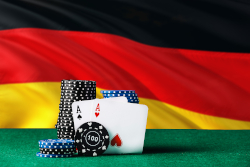
Gambling laws in Germany vary from country to country as there are both regulations established at the state level – in particular the "Interstate gambling Treaty" of 2021 – and regulations at the local level. This means that, for example, in one federal state, a casino is available for people over the age of 18. and in another - from 21 years. because local governments on the basis of federal laws create their own legal regulations in force on their territory. Land-based casinos they are supervised by the federal authorities of Germany, but each federal state individually defines a limit on the number of casinos, issues permits for their operation, and can also determine their permitted location. The same applies to gaming salons in which they are made available slot machines .
Germany's gambling law was changed in 2021 to allow private operators to obtain licenses to offer online gambling. Companies can apply for a permit (for a period of 5 years), on the basis of which they can arrange online betting, slot machines or a game of poker . To obtain a license it is necessary m.in. a minimum security deposit of 5 million euros. Permits are valid throughout the country and can be applied for by entities whose registered office is located in a country belonging to the EU or EEA (European Economic Area). While online casino (e.g. roulette, blackjack and live online games) not covered by this regulation - the possibility of its organization is to be determined by the separate laws of the individual Länder.
For Internet users in Germany it is necessary individual account registration . In addition a limit of 1,000 euros per month can be spent on online gambling by an individual player has been introduced . The Limit does not apply to a given operator, but to all gambling platforms – enforcement of this provision ensures that all operators are connected to a common "limit control database". The law is more restrictions on the game - for example, in the case of online slot machines, the maximum bet is EUR 1 per spin, and the minimum playing time is 5 seconds. Jackpots are also banned in Germany. When it comes to betting, you can bet on the outcome of the match, the events that will take place during the match and a combination of these events, and live betting is allowed under certain conditions.
In Germany on slot machines and online poker is imposed turnover tax of 5.3% , to this level was also increased the tax on games, which applies bookmakers. Land-based casinos, on the other hand, pay taxes at the rate set by the land.
Czech Republic
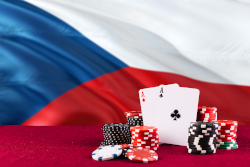
Gambling law in the Czech Republic is regulated by Act No. 186/2020 Coll, which enters into force at the beginning of 2021. according to its provisions, gambling includes 8 types of games : betting, totalizator, bingo, technical game( slot machines), live table games (roulette, card games, dice games), small scale card tournament, lottery (number, cash prizes, cash prizes, instant lottery) and lottery 2. a type where winnings are distributed based on a draw in which only sold betting coupons participate. Gambling is allowed for people who 18 years old .
The state does not organize any gambling. Their installation is allowed after obtaining permission. The number of licenses in the Czech Republic is not limited. A legal person whose registered office is located in an EU or EEA country that meets the legal requirements may apply for a gambling permit. The Ministry of Finance basic authorisation for a period of 6 years, however, in order to offer slot machines, live games or bingo in a given locality, an additional fee is required permission from the city authorities (for 3 years). They can impose restrictions on gambling services or impose a local ban on the organization of selected games. In the Czech Republic, many municipalities use this right – in January 2021, a ban on slot machines began to apply throughout Prague (however, previously issued permits are valid, so slot machines will be available here until the end of 2023). The possibility of local restrictions does not apply to online gambling.
Land-based gambling in the Czech Republic can be arranged in casinos or gaming rooms. Casino it can provide live table games, slot machines (minimum 30 devices) and bingo, and the venue can operate around the clock. W gaming salons only slot machines (at least 15 devices) can be offered, and the premises can only work from 10.00 – 3.00. Points accepting betting (also in the form of a totalizator) and lottery ticket sellers are not restricted by such restrictions, and local authorities may not impose any restrictions on them.
Through the Internet you can organize in the Czech Republic on the basis of permission all gambling except lottery 2. type i small-scale tournaments. The new gambling law prevents the offer of illegal online gambling to Czech citizens – based on it was created "black list" of gambling operators without a Czech permit . Payment / internet providers are required to block payments / internet connections for entities that are known to be blacklisted. In the Czech Republic, illegal gambling is a criminal offence.
From 2020 winnings worth more than CZK 1 million are subject to a 15% income tax in the Czech Republic . This applies to individual lottery winnings, and other games of Chance are taxed annually if the total winnings from each type of game, after deducting the stakes placed, exceed this amount.
Slovakia
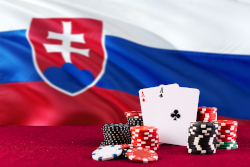
The gambling law of Slovakia was amended in 2023 and on its basis permitted games are: lottery games, charity lotteries, table games (such as roulette, card games, dice games), betting (including totalizator), promotional contests, slot machines, gambling on video game terminals and other technical devices operated by players. Gambling is allowed in Slovakia for people who have completed 18 years old .
Gambling can be handled by an entity that has received authorisation for such activities issued by the Office of Gambling Regulation. The number of permits is not strictly limited. The permit can be issued to a legal entity established in Slovakia or in a country belonging to the EU or OEG (foreign companies must establish a representative office in Slovakia). A company that wants to obtain a permit to organize gambling on the Internet must also m.in. have a sufficiently high share capital (its amount depends on the type of game) and establish the required financial collateral. The game operator's servers must be located in Slovakia. The validity period of the license varies from 2 to 10 years and depends on the type of game, it can also be extended. In Slovakia there is state monopoly, which concerns the online state lottery .
Illegal online gambling is tackled with the "Black List" , to which are added the addresses of websites and telephone numbers used by gambling operators operating without permission. It is possible to order telecommunications companies to block access to these websites and phone numbers, as well as prohibit payment service operators from making payments to the bank account of an unlicensed gambling operator.
In Slovakia, the user can bet online bookmakers or participate in other gambling games only when registering individual gambling account providing the required personal data. A person can have only one account with one gaming operator.
The casino games and the gaming salon are the only places in Slovakia where land-based gambling on slot machines and other technical devices can be arranged. In game rooms their number must be from 15 to 40 pieces, and there are restrictions on bet and win. In casinos card games (e.g. poker, blackjack, baccarat), roulette and craps can also be offered. In contrast, lotteries and card games can be held outside the casino after obtaining a general permit. Local authorities have the right to restrict or even ban the operation of casinos and gaming salons in their area.
Winnings earned by gambling participants are exempt from income tax in Slovakia.
Ukraine
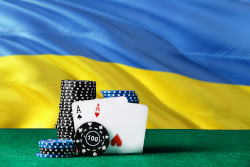
Ukraine regulates gambling with the help of the "law on state regulation of the activities of organizations and conducting gambling" adopted in July 2020. Previously, all gambling was legally prohibited in this country (since 2009), although in fact they were offered in the gray area of the market. The new law allows gambling in land-based and online casinos and slot machines . Bookmakers can be offered at fixed points and online organization is also permitted. lottery and poker games on the Internet . Currently, gambling is allowed in Ukraine for people who they turned 21.
Gambling services can be provided by entities that have obtained special permit . Domestic and foreign entities can apply for them, but they must be legal entities registered in Ukraine and meeting certain requirements (for example, share capital of at least $ 1.1 million). Separate permits are required to operate: land-based casino, online casino, casino slots or to organize online poker. However, in order to offer betting services, you need to obtain a permit, which includes both land-based and online services. Devices used for the organization of gambling must have the required certificates and operate within the framework of the state monitoring system.
In Ukraine casino games it can be located in a 4-or 5-star hotel, in Kiev only in a 5-star hotel, as well as in large out-of-town recreation centers and "special gaming zones". Slot machines they can only be placed in casinos and gaming rooms (also in 3-star hotels), but game rooms they can only operate in towns over 10,000. residents. Also betting points they can be carried out in hotels with a minimum standard of 3 stars, and in addition, at racetracks where it is possible to bet on horse races. While poker in ground mode it can take place as a gambling game in a casino or as a poker tournament – it should be noted that in Ukraine poker can also be played as a sport, the organization of which is carried out by certified sports clubs (they do not need permits for gambling activities).
Online gambling can only be offered on a website with a domain ending ". ua" . The gambling law of Ukraine provides for a system for monitoring the websites of online gambling operators. All gambling operators are also required to implement anti-gambling policies.
Winnings in Ukraine are subject to an 18% Income Tax and a 1.5% military tax, but winnings not exceeding 8 minimum statutory salaries are exempt from taxation .
Belarus
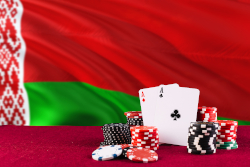
Belarus is one of the countries that is considered to be quite open to gambling. Gambling laws of this country allows you to arrange and participate in almost all types of gambling – both land-based and online . The law regulating the gambling market was adopted in 2008 and, it is worth noting, coincided with the introduction of a ban on gambling in Russia (except for special zones). In 2022, with the adoption of the decree "on improving the legal regulation of gambling activities", online gambling was also legalized in Belarus. Slot machines, betting shops, card games (e.g. poker), roulette, bingo or lotteries are allowed. However, participation in gambling is legal after 21 years , and the entrance to the casino is possible after passing the identity check.
Casino games can be conducted upon receipt from the Ministry of taxes and fees of the Republic of Belarus special permit which is issued for a period of 10 years (with the possibility of extension). Foreigners can also apply for them, but the company must be registered in Belarus and operate for at least 2 years. The gambling law also specifies other requirements, for example, regarding the impunity of company managers and their experience in the gambling industry.
As for online gambling, in Belarus it can be organized by companies that: have received the appropriate permission, have paid security for the withdrawal of winnings in the event of their insolvency and have allowed the tax authorities to remotely control the turnover (through remote access to the casino). Online gambling operators are required to checking the identity and age of players . The new gambling regulations also made it possible to introduce a mechanism to block access to websites that offer betting and other gambling without the required permission to persons residing in Belarus.
Interestingly, unlike many other countries in Europe, gambling advertising is allowed in Belarus under minor conditions (e.g. Prohibition of advertising gambling to children). Gambling winnings are subject to a 4% income tax in Belarus.
Lithuania

In Lithuania, gambling is regulated by the law of 2001, according to which permitted gambling is: table games (roulette, card and dice games), slot machines, bingo, betting i totalizator . All these games can be shared in Lithuania at the same location if the organizer has the appropriate permits. Gambling games can also be arranged at a distance, i.e. m.in. over the Internet .
The issuing of permits is handled by the Gaming Control Office under the Ministry of Finance of Lithuania. One company can obtain all kinds of permits. In addition, there is no top-down limit on the number of licenses issued for the organization of gambling and they are important indefinitely . Companies established on the basis of Lithuanian law that meet the statutory requirements for share capital and companies established in the member states of the EU, the EEA or Switzerland that: m.in. they have a branch in Lithuania.
Licensed casino games it must be equipped with a minimum of 3 gaming tables (1 of which is for roulette) and 30 slot machines. Slot machines Kat. A (that is, those in which winnings are not limited) and gambling tables can only be found in casinos games. On the other hand, Category B slot machines (where betting and winnings limits apply) can be made available in gaming salons . Card games, such as poker for money, which take place outside of the casino game, are not subject to separate legal regulation.
Betting on bookmakers and playing other online gambling games is possible after registering a player account and going through identity verification. The gambling account is valid for one year, but its validity period can be extended by the player. Lithuania also applies various mechanisms to prevent illegal online gambling, such as blocking access to illegal gambling websites for users in Lithuania or requiring financial institutions to suspend payments and other financial transactions related to an illegal gambling operator.
Neither the casino, nor bookmakers or other gambling companies can give players loans . Moreover, in Lithuania, gambling establishments are not allowed to use payment cards or install ATMs. In addition although in Lithuania gambling can be done by people who are over 18 years of age, only people over 21 years of age have access to the casino games. Similarly, only players over the age of 21 can participate in online casino games.
Gambling winnings are subject to a 20% income tax in Lithuania from individuals (the difference between the BET and the payout is taxed).
Russia

Under the law adopted in 2006. organization and participation in gambling in the form of land-based or online casinos are prohibited in Russia . The ban applies to the following games: slot machines, table games like roulette or blackjack, poker, bingo. At the same time, the Russian gambling law provided for the creation of 4 gambling areas at a great distance from the capital of the country in which this ban does not apply. Their location is Primorye in the Coastal Country, Altai in Siberia, Yantarnaya in the Kaliningrad region and Sochi in the Krasnodar Territory. It should also be mentioned that after the annexation of Crimea, Russia designated an additional gambling zone on the Crimean Peninsula. While online casino games, including online poker, are completely banned so their organization is illegal in Russia. In turn lotteries are not recognized by Russian law as gambling - they are regulated by a separate federal law. Participation in legal gambling is allowed for persons who have over 18 years .
In Russia you can get permit for betting, totalizator and gambling activities (permission for land-based casino and gaming salons). However, it is required that the company is registered in Russia and meets other requirements, such as the impunity of its shareholders or the amount of share capital.
Betting and totalizersare the only forms of gambling that can be legally offered on the Internet in Russia. In 2014 and 2023, subsequent laws legalized them as so-called Interactive bets. These are online betting sites that they can be arranged by any licensed bookmaker and he does not need to obtain a separate permit for the organization of bets via the Internet . A given betting company can only make bets on 1 domain, having previously informed the state regulator what its name sounds like. In addition, the servers used to handle transactions must be located on the territory of Russia. Strict control over the activities of bookmakers is provided by a system of self-regulating organizations, and all financial transactions can be carried out only through the state payment service provider (TsUPIS).
In order to minimize the phenomenon of illegal gambling in Russia is conducted so-called. blacklist websites that contain domain names with illegally offered gambling games. Internet service providers are required to block access to sites that are in this registry. Moreover, websites that contain links to or discuss illegal gambling sites are also blocked.
Prizes worth more than $ 15,000. rubles are subject to income tax, which in Russia is 13% (the tax base is the winnings reduced by the bet amount). In turn for players who are not Russian residents, the tax rate is 30%.
Gambling in Europe-where is the law liberal?
Europe is a continent where there are countries with extremely different approaches to gambling. Below we describe what are the laws in those European countries where the law is quite favorable to gambling.
United Kingdom
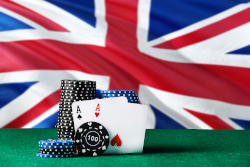
The UK is one of the most liberal countries when it comes to gambling laws, and at the same time the second largest gambling market in Europe. Casinos, game rooms, bingo halls are allowed here, bookmakers can also work. In the UK, there is also a National Lottery and private lotteries of a charitable nature. Gambling of various types can also be organized on the Internet. In principle, all gambling is allowed here, as long as the player is over 18 years old (and selected slot machines and lotteries are available for people over 16.).
The gambling laws of the United Kingdom are contained in the Gambling Act 2005 (the"Gambling Act"). You can apply for a gambling permit citizens and businesses-British and foreign . There is no permit limit (except for the National Lottery). Separate permits are issued for land-based gambling and separate permits are issued for online gambling.
Land-based casino in the UK, it can offer table games such as poker, slot machines or bingo. Bookmakers at ground points, however, they can not only accept betting shops, but also have the right to install slot machines in them, m.in. betting terminals. In addition, betting can be accepted on racetracks and golf courses during sporting events. Bingo rooms they can offer a game of bingo and selected slot machines. Vending machines can also be installed in other places, e.g. pubs (with alcohol, but without meals) or licensed family entertainment centers. In the UK, a gambling licence is issued by the local authority.
The organization of gambling without appropriate permission is prohibited. However, interestingly, using the services of an operator that offers gambling in the UK without a permit is not qualified as a crime.
The tax on gambling is 15% of net profits, and in the case of distance games – 21%. Gambling winnings are usually exempt from income tax.
Malta

Malta has an exceptionally friendly gambling law as well as tax laws, which is why a lot of companies operating in the gambling industry are registered and licensed in this country. It should be noted that this permit is also valid in the UK. In Malta, it is allowed to organize games such as: roulette, blackjack, baccarat, poker against casino, betting, various types of lotteries and virtual sports games . Poker tournaments can be held here, but only in licensed casinos.
The most important piece of legislation regulating the gambling market in Malta is the Act passed in 2022 (the"Gaming Act"). To organize gambling legally, you must obtain government permit , whose validity period is 10 years. It is available to companies located in the EEA. The license may be of type B2C the provision of services by companies to consumers, and B2B in the case of cooperation between companies. The B2C license contains information about which type of games it applies to. However, it is designed in such a way that when an entity wants to expand its activities with another type of games, it does not have to apply for a new permit, only can easily extend the scope of the current license . The license may apply to games: Type 1 – casino (roulette, poker as a game against its organizer, blackjack, baccarat, lotteries), type 2 – betting, type 3 – random games involving players playing against each other, such as poker tournaments or bingo, and Type 4 – controlled arcade games.
Gambling operators in Malta are required to pay a fixed annual licence fee, a "compliance contribution" fee and gaming tax and income tax, but their the total costs are relatively small and very competitive compared to the burdens imposed in most European countries. As an example, online bookmakers can be used – while in Poland bookmakers have to pay a gaming tax of 12% of the bet rate (which they charge players), in Malta it is only 0.5%.
It is worth noting that Malta's gambling law also provides strict game control and the established regulations take care of its honesty and safety of players. Gambling operators they can't give players credit for the game. (in the form of cash, cash bonus or chips), which is part of the Responsible Gaming Policy.
Gambling winnings are generally exempt from taxation as long as the player's gambling activity is not frequent enough that it can be considered a professional, economic, etc. Furthermore, Malta's gambling law does not prohibit participation in gambling activities organised by entities that do not have a Maltese licence.
Monaco

Monaco is one of the most important gambling centers in the world, and traveling to this country is the dream of many players. This small town is famous for Monte Carlo Casino and several other hugely successful land-based casinos. Monaco's gambling law was established in 1987 by Law No. 1.103 on gambling. The document concerns fixed gambling and does not regulate the possibility of organizing online gambling.
Organizers of gambling in Monaco must obtain an appropriate permit, which is issued by the Ministry of Finance and economy. However, in practice the state-owned SBM operates all legally operating land-based casinos in the country , using the so-called gambling privilege (it was introduced in 1863, and was renewed from 2007 for a period of 20 years). In Monaco, we are currently dealing with a state monopoly on land-based casino games. A licensed casino may offer the following games: games against other players – including roulette, blackjack, dice, boules, etc., Baccarat (3 varieties), poker (7 varieties), war and hand, mechanical or electronic games. Slot machines must have a separate permit issued for each device.
The organization of lotteries in Monaco is prohibited, with the exception of lotteries organized for charity or for sponsorship of art. Citizens of Monaco can participate in the French national lotteries. Betting is also not allowed in Monaco, but in this case Monegasque people have the right to participate in betting on horse races offered by the French company PMU. Bingo is banned in Monaco. While online gambling is not included in the laws of Monaco at all . Although in 2001 a bill on this subject was proposed in the National Council of Monaco, but it was not adopted.
For the organization of gambling in Monaco without a permit, not only fines are threatened, but it is also possible to receive a penalty of imprisonment from 1 to 6 months, as well as deprivation of civil and family rights (for 5-6 years).
Persons under the age of 18 are not allowed to enter gambling centers. but also, for example, state officials, military personnel, clergy. It is also surprising that citizens of Monaco can not participate in gambling in the country at all, and employees of gaming centers-even outside its borders . In addition, to work in the casino you must obtain a personal permit issued by the minister of State.
Denmark
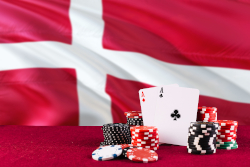
The gambling law in force in Denmark is contained in the Gambling Act 2010. all gambling can only be arranged by entities that have obtained authorisation required . The exception is the lottery, which is subject to a state monopoly. An authorisation may be sought by a natural or legal person whose place of residence or Registered office is in Denmark, an EU or EEA member state or, in the case of other entities, if a representative from Denmark has been appointed and has been approved by the Danish Gambling Authority. The period of validity of the permit is 5 years with the possibility of extension. Minimum age of players is 18 years old .
Land-based games can be offered in casinos, slot machines and in points offering betting and lottery games. In addition, poker tournaments can be organized on the ground. The number of land-based casinos is limited and there are currently 8 such centers in Denmark (2 permits have also been issued for casino games at sea). In the case of gaming salons, there are no such restrictions. Both the casino and the gaming salon receive permission to operate in a specific location that meets certain conditions. Casino games usually offer blackjack, baccarat, punto banco, roulette and slot machines. Poker and other gambling games can be arranged in a land-based casino after receiving additional permission. Slot machines that are available outside of a land-based gaming casino are subject to a lower maximum bet limit and maximum pricing. The venues where the games of chance and betting are offered are not limited, both in terms of their location and the number of permits.
As for bookmakers and online casinos there is no top-down permit limit. With some exceptions, the servers used to provide online gambling services must be located in Denmark. Foreign operators who do not hold a Danish gambling licence may provide such services to players residing in Denmark, as long as their services are not directed to the Danish market. There are several factors that qualify the service as directed to the Danish market, m.in. running an online gambling website in Danish or using Danish kroner as the payment currency on the website. In this case, steps are taken to ensure that the provision of services to players residing in Denmark is terminated (for example, payment services for this operator or access to its website in Denmark may be blocked). There is also a ban on advertising gambling games offered without permission.
Gambling winnings are free of income tax in Denmark unless a permit has not been issued for them – then the tax can be up to 62%. For land-based gambling operators, the gaming tax depends on the gross gaming income earned (GGR) and is between 45% and 75%, and for online gambling – 20% GGR.
Gambling in Europe-Western countries with significant restrictions
On the other hand, gambling in Europe is burdened with quite large restrictions in some countries, although it is not completely banned anywhere (even Turkey allows some forms). Below we present what the gambling law looks like in 3 large and quite often visited by Poles countries of Western Europe.
France

In France, gambling is generally prohibited, but the law provides for a number of exemptions, thanks to which individual land-based and online practices are allowed. To open land-based casino , you need to go through a detailed procedure for issuing a permit from national and local authorities, and it is possible to obtain it only in locations such as SEA, Thermal and climatic resorts or urban tourist resorts meeting strictly defined conditions. There is also a ban on casinos in Paris and within 100 kilometers from it. Casinos can be located in merchant ships . There is no limit to the number of permits issued. The casino may offer table games such as roulette or card games (including poker) and slot machines. There have also recently been so-called game clubs which operate on a permit basis and offer fewer games than a casino, but are not affected by their location restriction.
In France, the semi-public company FDJ (La Française des Jeux) has a monopoly on the organisation of commercial lottery games and betting. In turn, bets on horse racing can only offer PMU (Pari Mutuel Urbain). Currently however, the monopoly of FDJ and PMU applies only to games organized in ground mode . In 2010, a law was passed that allowed private entities, including foreign companies, to apply for a license to organize online gambling. Companies can apply for permission to place online: sports betting, horse betting and poker. Each game is issued a separate license, but 1 entity can get each of them.
Online play is possible after creating a player account and give your age. Strict rules define the rules for making deposits and withdrawals from player accounts, for example, they can only be funded by its holder or the operator of the games (in case of a win or as part of a promotion). Gambling organizers they can't give credit to players. .
Permits are issued by the National Gambling Authority. It is also within his competence m.in. require internet and hosting providers to block access to websites offering illegal gambling, and search engine operators to stop linking to these sites. It can also apply to the Ministry of budget to block the financial flows of online gambling operators operating without permission.
The law provides for heavy financial penalties for unlicensed gambling operators and a prison sentence of up to 3 years. However, the procedure usually ends with an invitation to the operator to stop providing services to users in France. Separate penalties threaten for offering gambling to minors. However, participants in illegal games are not punished in France.
Gambling winnings are not taxable in France unless they are earned by professional gamblers. People who quite often get large sums from the game are required to pay income tax.
Spain
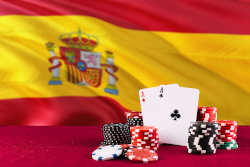
Land-based gambling is regulated in Spain at national and regional level . Each of the 17 autonomous regions can determine the rules on which land-based gambling can be organized on its territory. However, online gambling is regulated only by National Law. The most important legal act is the "Gambling Act No. 13/2011" and its complementary decrees (from 2011 and 2020), and the main body regulating gambling activities is the General Directorate for regulation of gaming activities (DGOJ).
Each region has its own rules for the organization of land-based gambling and decides what is the catalog of permitted gambling and the place in which it can be organized. However, they are generally allowed casinos , in which can take place roulette, blackjack, baccarat, poker, 30 and 40, craps, and slot machines Type C. In Spain, they also operate bingo rooms with bingo and B & A slots slot machines with Type A and B slot machines. Betting points however, they can only offer betting services.
Under the 2011 law, online gambling can be offered in Spain on the basis of authorisation by the Spanish national authorities . Companies must first obtain a general authorisation, but applications are only possible if the DGOJ announces a call for tenders (usually this possibility appears once every few years). General authorisation (for 10 years) can be spent on the device: 1. betting, 2. casino games, slot machines, poker and bingo, 3. lottery and 4. competitions. However, two companies are exclusive to offer lottery games: ONCE and SELAE (a state-owned company).
Once a general authorisation has been obtained, it may be applied for at any time permission for detailed games (for 3 or 5 years), e.g. fixed-rate bets on horse racing or reciprocal sports betting. You can apply for a permit companies based in the EU the financial guarantees amount to EUR 2 million for each general licence.
The gambling operator's website must have a domain with an extension ". es" other technical requirements must also be met (e.g. main server located in Spain). Gambling services of licensed operators must be directed exclusively to citizens and residents of Spain, therefore it is necessary to implement IP geolocation in order to prevent access to games by persons who are not residents of Spain.
Illegal gambling is threatened serious sanctions fines are also imposed, for example, for the lack of proper identification of the player or unacceptable advertising practices. Gambling advertising is restricted in almost all of these countries, but in Spain the rules are extremely strict. E. G. in principle, it is forbidden to sponsor sports teams . Gambling operators are also not allowed to give players credit or loans.
Italy

In Italy, gambling is regulated by many national laws as well as regional regulations . The main regulatory body in the gambling industry is the ADM (Agenzia delle Dogane e dei Monopoli). The possibility of participating in gambling is permitted by law for persons who 18 years old . In Italy there are only 4 land-based casino games and they are all located in the north of the country.
To be able to organize gambling in Italy, a public tender must be launched in order to obtain the appropriate permit or concession . G the main categories of permits are: 1. internet licenses (for online casino, poker and betting), 2. fixed permits (slot machines and betting), 3. concessions for lotto and lotteries. Permission may be sought operator holding a gaming licence in a country belonging to the European Economic Community , having m.in. technical capabilities, adequate share capital and bank guarantee. The entity must also meet competence and reputation requirements. The company's servers must be located in the European Economic Area.
It is worth noting that Italy was the first EU member state to legalise, license and comprehensively regulate online gambling (in 2006). Operators of casinos and mutual bets have the obligation identify and verify the identity of clients who make transactions with a total value equal to or greater than € 1,000 . Player accounts can only be recharged using traceable means of payment. In Italy there is also list of online gambling operators operating without a license and the ADM prohibits them from acting. Mechanisms have also been implemented to implement the responsible gaming policy, such as the obligation to set budget limits for the player's game or the possibility of self-exclusion of the player.
In 2022, Italy introduced total ban on gambling advertising, including sports sponsorship , which was caused by the intensification of the problem of gambling addiction in this country.
Italian law provides for penalties for people who organize, but also participate in illegal gambling activities – from financial penalties to imprisonment and imprisonment. High fines are also threatened for violating the ban on advertising gambling.
The tax on winnings is levied in Italy on winnings from certain gambling games, the amount of which exceeds 500 euros.
Gambling in the world
Finally, let's take a look at some of the countries on other continents.
USA

In the United States, gambling is regulated at the federal and state levels. Each state establishes what gambling can be practiced within its borders, who can organize them etc. The minimum age of people who can participate in gambling may also vary. Casino games, if permitted in a state, can generally only be played in designated, small geographic areas or on Indian reservations.
What about online gambling, in 2006, the United States passed a law banning online gambling. However, the state authorities also have the opportunity to establish a separate law in this regard . For example, by the beginning of 2022, about 30 states have already legalized betting, and in 18 also those that are arranged via the Internet. In subsequent States, work is underway to launch their own legal programs to allow the organization of gambling on the Internet.
Canada

Although gambling is prohibited by Canada's Criminal Code, in 1985 the provincial government was granted the right to conduct and manage gambling on its territory. In Canada, as in the United States, there are significant differences in the existing gambling laws depending on the province where we are. Most often, participation in gambling is legal for people who have completed 19 years old - the exception is Quebec and Alberta, where the minimum age of the player is 18 years old .
Most of Canada's provinces have government Lottery Corporations they have a monopoly on gambling. The private companies that run these games are registered (not licensed) and act as providers of gambling services and products. Provinces most often allow lottery corporations to offer all types of gambling - both stationary and online. In 2021, individual bookmakers were also legalized (previously banned).
Canada's problem is the unclear status of foreign operators offering online gambling. However, Ontario indicates a possible direction of change – in April 2022, the province launched a legal online gambling market for companies (also foreign) which meet certain conditions, m.in. they will register as a gaming operator and sign relevant contracts with the province.
Japan
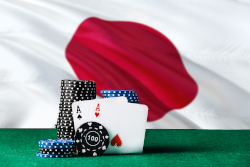
In Japan, for several decades, gambling was almost completely banned – the exceptions were m.in. public lotteries and betting on 4 horse races, bicycle, motorcycle and motorboat races organized on the basis of permits by local governments and government entities. In 2022, however, it was adopted a law legalizing gambling in 3 designated locations (integrated gambling resorts) by licensed entities. So far, no casino license has been issued in Japan (as of April 2022), but various entities are applying for it.
Online casino , including games such as poker, roulette, bingo or slot machines are in Japan prohibited . Online betting is only legal if it relates to the 4 sports listed above and can only be arranged by state authorities.
Brazil
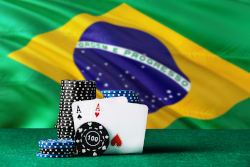
Brazil is another country where gambling is banned. Only state-run lotteries and horse-racing betting are legal. Poker, on the other hand, is considered an arcade game by law and is not illegal. In 2015, however, it began the process of opening up the Brazilian gambling market we are also working on draft laws. m.in. on the creation of integrated casinos in the resorts.
Brazilian law does not regulate online gambling and thanks to a loophole, foreign gambling operators can offer their services in Brazil.
